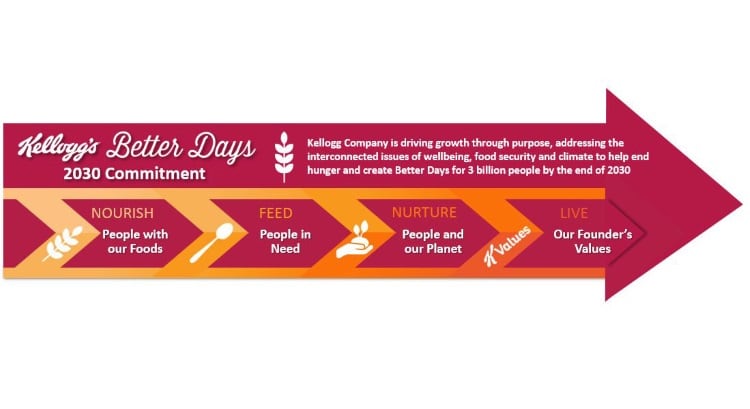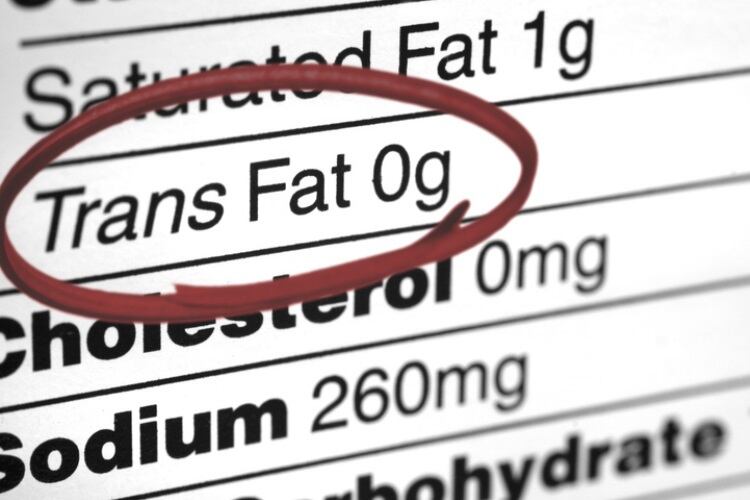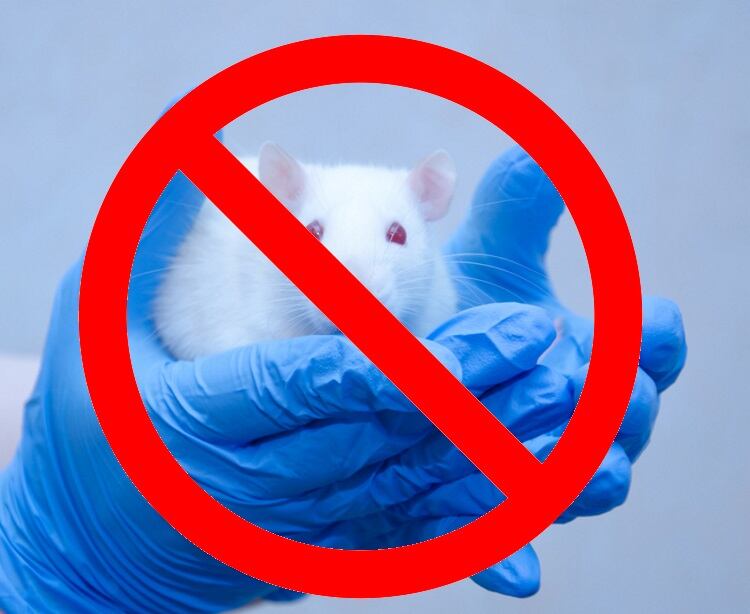There are just over 4,000 days until the end of 2030, ‘so we must move quickly and collaboratively to achieve the UN’s Sustainable Development Goals (SDGs) that are of critical importance for humanity and the planet.’
4,000 days = 4,000 opportunities.
No excuses.
That is the pledge made by Cahillane along with Peter Bakker, president and CEO of the World Business Council for Sustainable Development (WBCSD).
Earlier this week, Kellogg unveiled its latest raft of social and environmental commitments under its Better Days initiative, which take its corporate responsibility work and impact to the next level.
By the end of 2030, the conglomerate aims to drive positive change for three billion people by focusing on the interconnected issues of food security, climate and wellbeing.
Zero hunger
“Today, the number of people affected by food insecurity is staggering,” added Cahillane.
“There are more than 820 million hungry people in the world, the majority of whom are women and girls. As a leading global plant-based food company, achieving food security is at the heart of Kellogg Company's commitment to society.”
The company has avowed to feed 375 million people through donations in the lead up to the SDGs and continue its work to reduce food waste.
It also plans to support a million farmers to deliver climate-smart farming, maximize yields, tackle deforestation and reduce GHG emissions.
Kellogg is a member of the Science-Based Targets initiative, under which it has a goal to cut its direct greenhouse gas emissions 45% by 2030, while reducing its supply chain emissions by 15%.
To date it has cut its greenhouse gas emissions by 12.9%, putting it within reach of the target, but it admits climate change is hampering its ability to cut emissions faster.
Kellogg’s Better Days initiative pledges to:
- Nourish one billion people with its foods, delivering nutrients of need and addressing hidden hunger;
- Feed 375 million people in need through food donations and expanded child feeding programs;
- Nurture the planet as it supports one million farmers, especially women smallholders and workers;
- Conserve natural resources all along the value chain, from responsibly sourcing ingredients and reducing food waste, to providing recyclable, reusable or compostable packaging;
- Encourage employee volunteerism, ensuring an ethical supply chain and supporting diversity and inclusion;
- Live its founder’s values by advocating on behalf of hungry children everywhere and engaging 1.5 billion people to help address the important issue of food security.

"We will continue to pick up where our founder left off by making sure we do everything we can to leave the world a better place than we found it," said Cahillane.
"But we know we cannot achieve these ambitious goals alone."
Together we can
WBCSD’s Bakker praises Kellogg for its work to date with various partners.
“Kellogg has certainly set ambitious goals and is forging strong collaborations around the world − with colleagues, supplier partners, customers, government leaders, NGOs, people who enjoy its foods and others − to help achieve them.
“For example, the company works with WBCSD and others on FReSH initiatives to help transform the global food system.
“Our collaboration with WBCSD also enables Kellogg to support the CocoaCloud, a critical weather tracking tool in West Africa to help cocoa farmers make climate-smart agriculture decisions.”
Bakker is calling on the private sector to scale up efforts.
“We are calling on all companies and their employees to mobilize, to do all they can so people can live well and within the limits of our planet,” said Bakker.
Win-win: Kellogg and TNC invest in the planet
The world’s burgeoning population is placing greater stress on farmland and natural resources as the demand for food production has dramatically increased.
A prime reason why farmers are so important.
Kellogg has partnered with The Nature Conservancy (TNC) to empower farmers with the resources they need to meet these increasing demands, while safeguarding their livelihoods and protecting the environment.
Practices – like cover cropping, conservation tillage, nutrient management, vegetative buffers, irrigation efficiency and wetland restoration – enable farmers to increase crop productivity and reduce input use while making a positive impact on soil health, water quality and aquatic habitat in local streams and wetlands.
The three-year project is forecast to impact 25,000 acres of corn, wheat and rice-growing areas of the Midwest and Great Lakes regions in the US, with the potential to indirectly improve up to two million acres over time.
“It's a win-win for people and nature,” says Dayna Gross, senior corporate engagement advisor, Global Agriculture, TNC.





